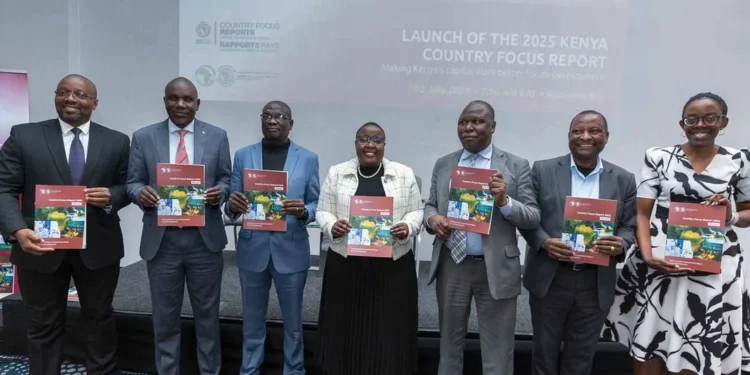With real GDP growth of 4.6% in 2024—well above the global average of 3.3%—and inflation falling to 3.8% in May 2025 from a peak of 9.6% in 2022, Kenya is positioning itself as one of Africa’s most stable and dynamic economies. This positive trend is further reinforced by the appreciation of the Kenyan shilling, which rose from KES 159.7 per US dollar in January 2024 to KES 129.3 by the end of May 2025. Projections for 2025 are equally promising, with anticipated GDP growth of 5.3%, driven by rising agricultural productivity, a thriving services sector, and government policies aimed at bottom-up economic transformation.
In its latest Country Focus Report (CFR), titled “Making Kenya’s Capital Markets Work Better for Development”, the African Development Bank Group (AfDB) praises Kenya’s structural reform agenda and highlights its economic resilience in the face of global challenges. The report emphasizes that Kenya has not only maintained economic growth but has also laid strong foundations for long-term sustainable development by mobilizing its fiscal, natural, business, financial, and human capital more effectively.
Bridge to the future: Africa consolidates its digital strategy at GABI 2025
“The performance of Kenya’s economy reflects the strength of our policies and the diversity of our economy,” said Dr. Kenrick Ayot, Senior Deputy Secretary at the National Treasury, speaking at the report’s launch. According to Ayot, deliberate and strategic policies have improved key economic indicators, creating a favorable environment for investment and sustained growth.
The report further highlights Kenya’s progress in key sectors such as infrastructure, financial services, and innovation, while noting ongoing efforts to close gaps in access to credit, formal employment, and education aligned with the jobs of the future. Caroline Ntumwa, AfDB economist for Kenya, emphasized the country’s vast potential and stated that Kenya’s current trajectory positions it as an emerging model on the continent. Echoing this sentiment, George Kararach, Lead Economist for AfDB’s East Africa region, commended the government’s initiatives to expand the tax base, promote digital taxation, deepen capital markets, and attract green and blended financing to key sectors such as agriculture, sustainable mining, and the digital economy.
The report launch featured a multi-stakeholder panel with representatives from the public sector, private sector, and academia. Discussions centered on channeling Kenya’s diaspora remittances—amounting to over $5 billion annually—into productive investments, as well as tackling youth unemployment, fostering innovation ecosystems, and promoting university–industry partnerships. Audience members emphasized the importance of building investor trust, empowering women as key actors in capital mobilization, lowering the cost of finance for MSMEs, and aligning education systems with labor market demands.
The AfDB’s recommendations reaffirm that Kenya has both the vision and the capacity to lead a new era of growth on the continent. With a strategic focus on institutional strengthening, public-private partnerships, and holistic capital mobilization, the country is laying the groundwork for an inclusive, resilient, and sustainable economy. Kenya is not merely aiming for growth—it is charting a development path rooted in its own potential, driven by its people, and sustained by its long-term commitment to a better future.









